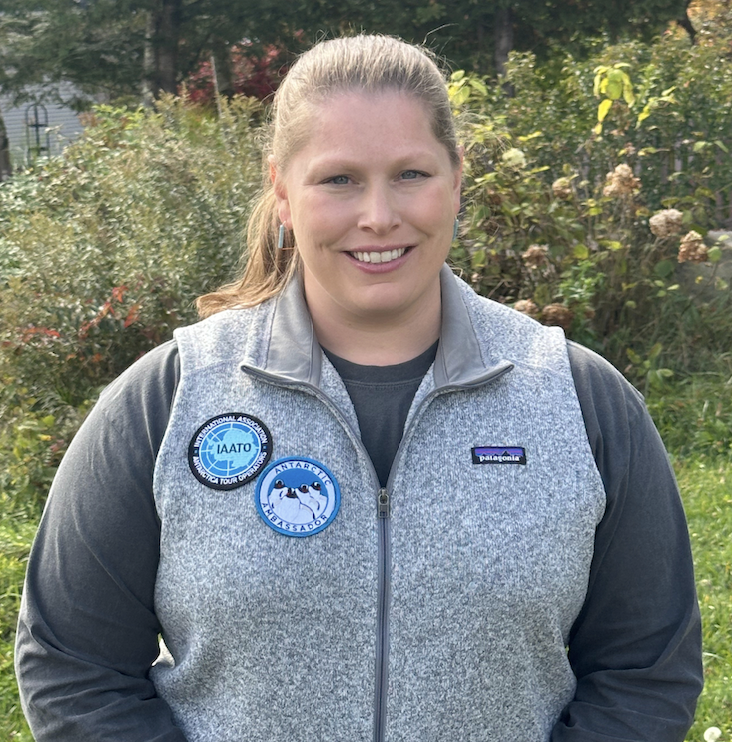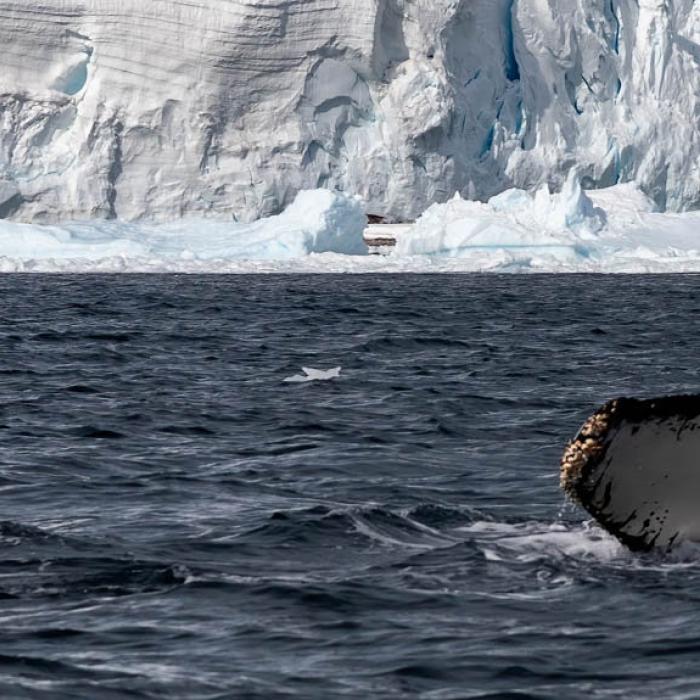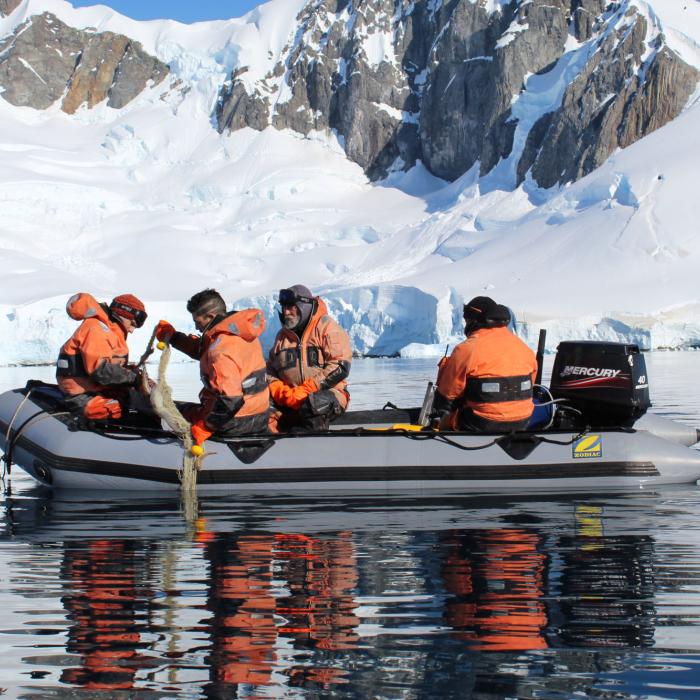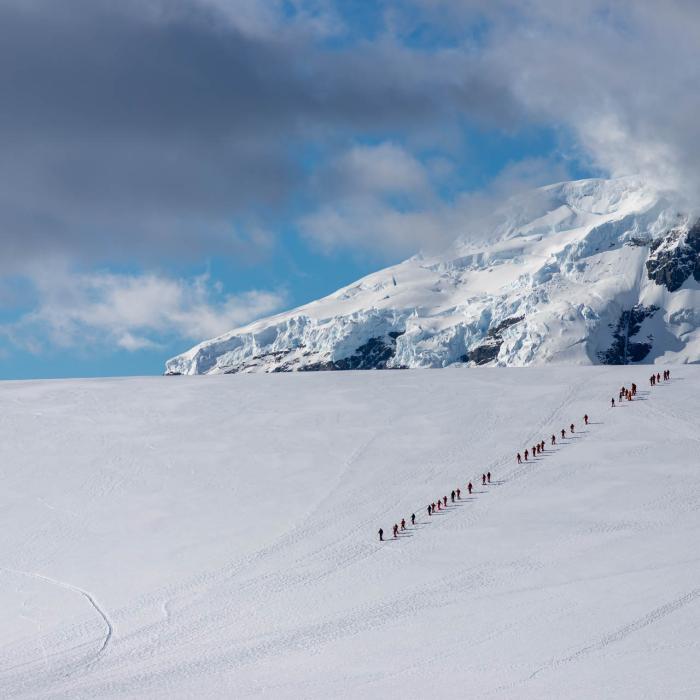
On World Oceans Day, what we choose not to do can be just as important as what we do
June 8 marks World Oceans Day, a moment to reflect on the vital role our oceans play in sustaining life on Earth and our shared responsibility to protect them. For those working in and around Antarctica, the ocean is not merely a backdrop for the region's majestic landscapes; it is a living, breathing habitat where even the slightest disruption can ripple through entire ecosystems.
This year, the International Association of Antarctica Tour Operators (IAATO) has taken another significant step in our mission to advocate for safe and environmentally responsible travel in the region. Starting in the 2025–26 season, all IAATO member vessels operating in the narrow Antarctic channel known as the Gullet will be required to follow mandatory acoustic mitigation protocols designed to protect one of the continent's unique marine species: the B1 killer whale.
These whales are remarkable creatures. They live in groups and hunt cooperatively, relying on sound to communicate and navigate in one of the planet's most remote areas. However, research has shown that vessel can interfere with their communication, potentially disrupting their feeding behaviours and putting this vulnerable population at greater risk.
During the 2023-24 and 2024-25 seasons, IAATO implemented the Maritime Acoustic Awareness Zone (AAZ) as a voluntary trial, which yielded promising results. With the full support of our members, the AAZ is now being established as standard operating procedure - a practical, science-based action aligned with our commitment to environmentally responsible tourism.
The newly mandated acoustic mitigation measures include adhering to a no-go zone of 400 metres in the AAZ when whales are observed, allowing only one ship at a time in the area, reducing the number of engines to a minimum, reducing speed of vessels to a maximum of 10 knots, and avoiding the use of thrusters.
This decision was not made in isolation; it builds on decades of IAATO's work within the Antarctic Treaty System. Our members have previously mandatory speed restrictions and in whale-rich areas like the Gerlache Strait and the South Shetland Islands.
On this World Oceans Day, the message is clear: conservation is not a passive endeavour. It requires an open mind and a willingness to listen to the science, the environment, and the quiet that these glorious marine mammals need to thrive.
The tourism industry often faces justified scrutiny regarding its environmental impact. However, this initiative demonstrates that we can continue to be part of the solution through strong standards, informed decision-making, and shared accountability. IAATO is proud to lead by example.
In Antarctica - and in oceans everywhere - what we choose not to do can be just as important as what we do.

About the Author - Maureen Lynch, IAATO Resource Management Coordinator
Maureen joined IAATO in 2024 and is responsible for developing and coordinating environmental monitoring programs to inform a strategic approach to site management.
Maureen’s first expedition to Antarctica was during the 2006-07 season at McMurdo Station. She was working at the Virginia Institute of Marine Science as a lab technician supporting research on diatom ecology. Years later, she returned to Antarctica through her PhD research on gentoo penguin behavioral ecology, collaborating on penguin population research with Oceanites. Her field work was supported by IAATO members for six seasons between 2013-2019, and this was her first exposure to responsible tourism in Antarctica.
Prior to joining IAATO, Maureen worked as a fisheries program manager at Vermont Fish & Wildlife for five years where she oversaw the management of inland fisheries and habitat programs. Earlier in her career she was a fisheries observer in the North Atlantic ground and midwater fisheries, and a lab technician. She enjoys working at the intersection of science and policy to make data-informed conservation and resource management decisions and is excited to be able to return to working in the Antarctic system.
Maureen received a PhD in Ecology and Evolution from Stony Brook University, NY, a MS in Conservation Ecology and Aquatic Science from the University of Michigan School of Natural Resources and Environment, and a BA in Marine and Freshwater Science from Colgate University, NY.


